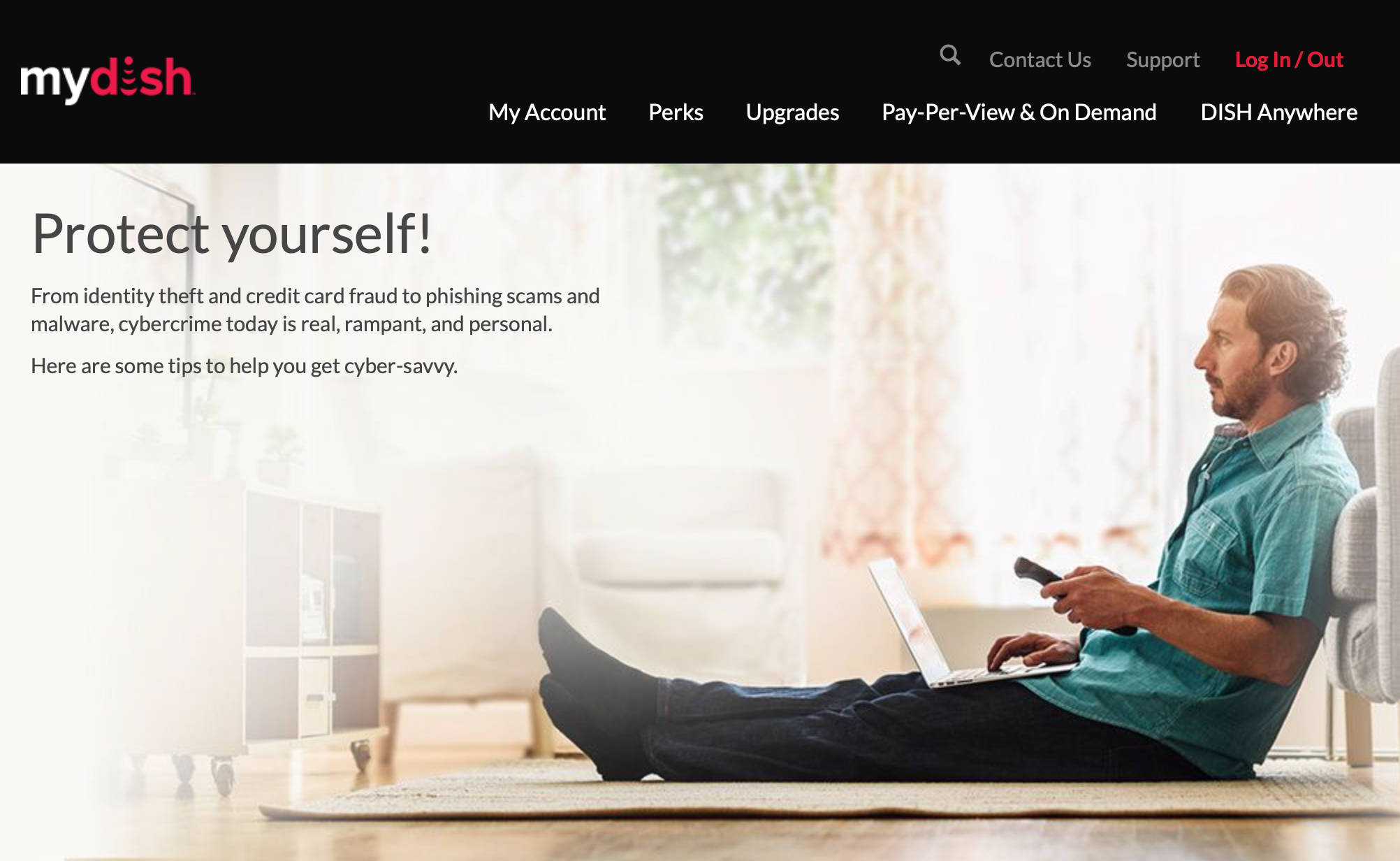Pay TV Consumer Protection 101: Warning!
The smarter way to stay on top of the multichannel video marketplace. Sign up below.
You are now subscribed
Your newsletter sign-up was successful
Human nature inevitably involves a few bad people doing lots of bad, and a few good people occasionally doing some bad. It’s no surprise then that we have now – and will likely always have – safety and security concerns when it comes to using our electronic devices.

Thank goodness, last week I received the notice below from a friend who subscribes to a well-known pay TV service, known as Dish Network. The written warning is that good, and good enough that I wanted to share it with everyone who reads this and perhaps also pass it along to a friend or family member. That would especially include a dear one who is not as sophisticated as the sender, when it comes to avoiding losses coming from evildoers and their hacking/thievery.
The notice below succinctly and professionally notifies not just Dish subscribers, but really everyone how to avoid bad pay TV actors.
As easy as it is for some hackers/thieves to get into your computer, financial account, or similar electronic service, this kind of Consumer Protection 101 cheat sheet is essential.
Pass this along! It will help everybody to use their computers – be they PCs, laptops, set-tops, smartphones, or tablets, for example – better and safer!
“Webmail –Main Link:
Periodically, Dish gets reports from Dish subscribers regarding suspicious calls in which our subscribers are asked for their account information or to make additional payments. This is an annual protection reminder intended to keep you and your personal information safe. No action is required at this time. Never assume the caller ID is correct for any call you receive. Scammers can easily spoof (i.e., incorrectly alter) their caller ID.
The smarter way to stay on top of the multichannel video marketplace. Sign up below.
Scammers use a variety of tactics:
· They will give you a sense of urgency. For example, you will lose your service if you don’t act now, or what they are offering is for a limited time
· Scammers may ask you to help someone in need or a loved one
· A scammer may offer some kind of incentive or something of value in return for your personal information
· Scammers impersonate government agencies. The scam may include saying your taxes are past due, or you are violating some law
· Scammers commonly reference computer vulnerabilities. They may say things like, “your device needs new software”, or “your computer has a virus”
Scammers have two main goals. They try to persuade you to:
· Make a payment by providing a credit card number or bank account number. Typically, these payment methods are different from your normal payment method
· Give up a piece of information: password, PIN, date of birth, social security number, account number or a device number - like a number from your receiver, computer or telephone
If you receive a suspicious call:
· Do not give out any information
· Do not make any payments or give out any of your banking information
· If you were left a voice message, don’t return the call
· If you have doubts, contact the company you’re doing business with directly. Get the company’s contact information from a separate source. Don’t use any number or email given to you by the caller.
For additional information and tips for protecting your information visit my.dish.com/support/consumer-protection or click the button below.”
Thank you, Dish.
And be safe!
Jimmy Schaeffler is the chair and CSO of The Carmel Group, a broadband, broadcast, and pay TV/video consultancy. He has spent nearly five decades producing, studying, writing, researching and analyzing, working with every type of player in the space. If you are looking to expand or better understand the industry, feel free to reach out to him at jimmy@carmelgroup.com, or go online to www.carmelgroup.com.
Jimmy Schaeffler is chairman and CSO of The Carmel Group, a nearly three-decades-old west coast-based telecom and entertainment consultancy founded in 1995.

